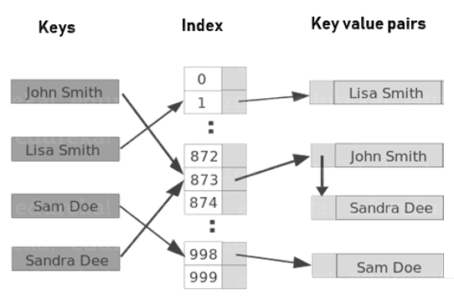Why Are Strings Immutable in Java? Best Practices and Use Instances
Exploring the Advantages of Immutable Strings in Modern Programs Paradigms
In the world of modern shows standards, the idea of immutable strings stands as a cornerstone of robust software application development. By adopting unalterable strings, programmers can guarantee enhanced data integrity, enhanced thread safety and security, simplified debugging procedures, increased protection measures, and efficient performance optimization.
Boosted Information Honesty
By stopping the modification of string objects, immutability eliminates the danger of unintentional adjustments to the data they hold. This not only enhances the security of the information yet also improves the integrity of the code that relies upon these strings.
Immutability also sustains safer multithreading settings, as concurrent access to immutable strings does not pose the threat of information corruption through simultaneous alterations. This property streamlines the procedure of dealing with strings in identical programs scenarios.
Fundamentally, immutability serves as a safety guard around the data saved within strings, improving their honesty by making certain that when defined, their values continue to be the same throughout the program's execution.

Improved Thread Safety
Immutable strings improve the string security of programs by guaranteeing that as soon as a string object is created, its value can not be customized. This residential property eliminates the risk of simultaneous strings trying to modify the very same string simultaneously, which could lead to data corruption or inconsistent states in the program - Why are strings immutable in Java?. In a multi-threaded atmosphere, where multiple strings gain access to and manipulate data all at once, the immutability of strings offers a level of safety and security by ensuring that the data continues to be unmodified throughout its lifecycle
Streamlined Debugging Processes
Offered the improved thread safety and security assisted in by immutable strings, a considerable benefit develops in the realm of streamlined debugging procedures. Immutable strings, once produced, can not be changed, making it easier to map the circulation of information and recognize the source of pests in a program. This immutability makes sure that strings remain consistent throughout the implementation of the program, decreasing the likelihood of unforeseen adjustments that can bring about errors.
When debugging with mutable strings, designers frequently experience problems where a string's worth is changed accidentally, making it testing to determine the origin reason of a pest. However, with unalterable strings, the data continues to be the same, enabling designers to concentrate on evaluating the actual reasoning of the code rather than finding where and when a string was changed incorrectly.
Furthermore, unalterable strings simplify the debugging procedure by allowing simpler recreation of pests. Because immutable strings do not change state, developers can recreate and research bugs a lot more successfully, leading to quicker recognition and resolution of issues within the codebase. This streamlined debugging workflow eventually contributes to higher software application top quality and improved total growth efficiency.

Boosted Safety Steps
Enhancing data security and strengthening system integrity, the utilization of immutable strings in software applications adds significantly to boosted safety actions. Immutable strings, as soon as developed, can not be customized, offering a crucial defense against malicious tampering or unapproved accessibility. By guaranteeing that sensitive data stored in strings continues to be unchanged throughout the program's execution, the risk of data breaches or injection attacks is significantly reduced. Why are strings immutable in Java?. Immutable strings likewise play an important function in protecting against usual safety vulnerabilities such as barrier overflows and SQL shot assaults, as attempts to manipulate string data at runtime are naturally limited.
Moreover, the immutability of strings enhances the predictability of program habits, making it much easier to validate inputs and protect against unexpected modifications that could endanger safety. This predictability simplifies the procedure of bookkeeping More hints and validating code, enabling designers to identify prospective safety and security technicalities better. In general, incorporating immutable strings right into software advancement techniques not just enhances the toughness and reliability of applications however also strengthens their resilience against safety and security hazards.
Reliable Performance Optimization
When dealing with mutable strings, operations like concatenation or substring creation typically result in the production of new string things, leading to memory expenses and enhanced processing time. By allowing strings to continue to be unchangeable and continuous, unalterable strings facilitate much better memory monitoring and caching opportunities, inevitably increasing the overall efficiency of the software program.
Because immutable strings can not be customized as soon as developed, they can be shared across strings without the danger of unforeseen adjustments, minimizing the demand for synchronization systems and enhancing concurrency. Unalterable strings streamline debugging processes as designers can trust that a string's value will certainly stay this article consistent throughout the program's execution, removing potential mistakes created by mutable state changes.
Final Thought
To conclude, the benefits of making use of unalterable strings in modern shows paradigms can not be overstated. Improved information integrity, boosted thread safety, simplified debugging procedures, boosted security steps, and efficient performance optimization all contribute to the overall effectiveness of shows tasks. By incorporating unalterable strings into programming methods, developers can gain from an extra trusted and durable codebase.
Immutability, a key function of strings in shows languages such as Java and Python, makes sure that as soon as a string item is developed, visit their website it can not be altered or customized.Immutable strings improve the thread safety and security of programs by guaranteeing that as soon as a string item is created, its worth can not be customized. Immutable strings likewise play an important role in preventing common safety and security susceptabilities such as barrier overflows and SQL shot assaults, as efforts to control string data at runtime are inherently restricted.
By permitting strings to remain consistent and stable, unalterable strings promote much better memory administration and caching chances, inevitably improving the general performance of the software.
Immutable strings simplify debugging procedures as developers can rely on that a string's value will remain regular throughout the program's execution, removing prospective errors caused by mutable state adjustments.